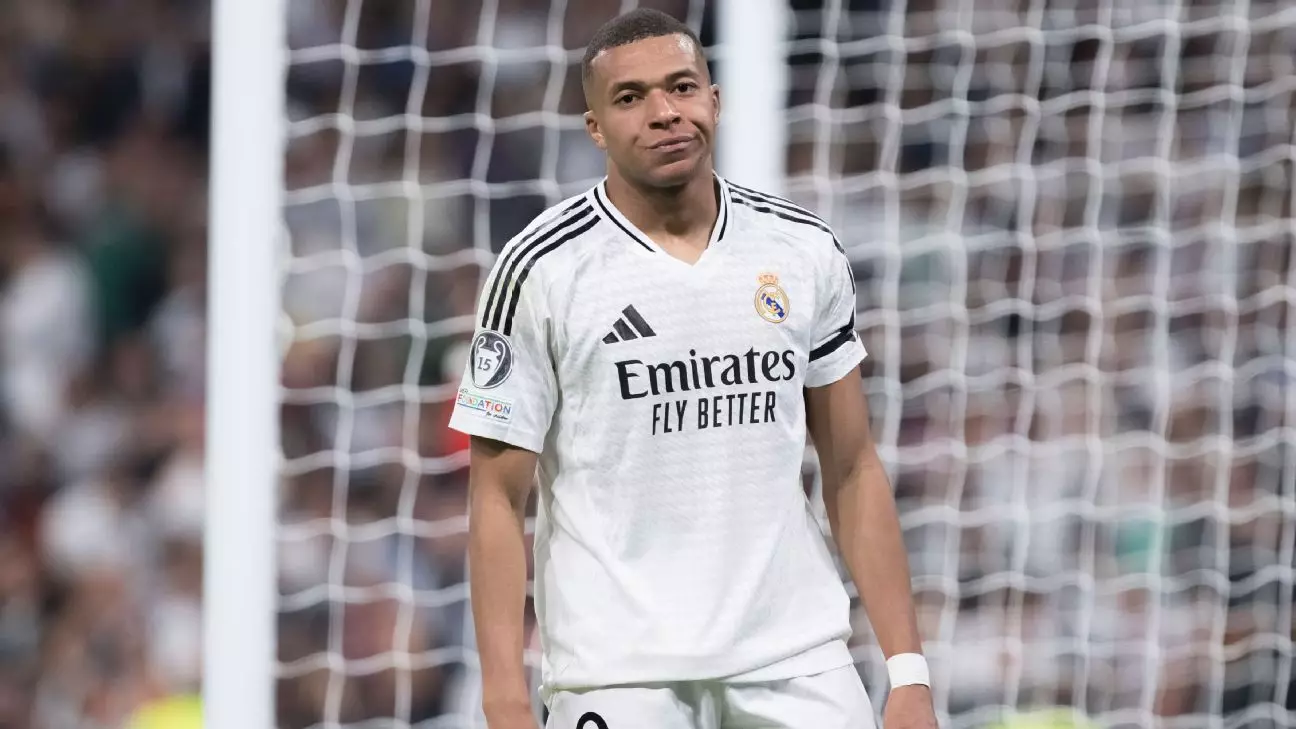Real Madrid’s recent performances have drawn significant attention, particularly regarding the form of star forward Kylian Mbappé. Despite falling short in key matches, head coach Carlo Ancelotti firmly argues that the issue is not limited to Mbappé alone but lies within the collective performance of the entire team. This assertion is vital, especially considering that Mbappé has only found the back of the net twice in his last nine appearances, a statistic that has fueled scrutiny from fans and analysts alike.
Ancelotti’s perspective shifts the narrative from individual blame to a systemic examination of the team’s struggles. By stating that “it’s a collective problem, not an individual one,” he invites us to broaden our focus and evaluate the underlying issues that have plagued Madrid throughout the season. Such an approach underscores the reality of football—a team sport where success hinges not only on star power but also on how well players coordinate and perform collectively.
With the weight of expectations on his shoulders, Mbappé has become a focal point, not just for his performances but also for the glaring misses, like the penalty against Liverpool in their recent Champions League match. Ancelotti highlighted that the mental burden on young players can significantly impact their output. The manager’s acknowledgement that “Mbappé isn’t depressed” points to the psychological resilience required of athletes at this level.
Furthermore, the intense media scrutiny that follows a club like Real Madrid can exacerbate the situation. Isolated criticisms of players like Mbappé risk overlooking the contributions—or lack thereof—from other squad members. The team dynamic isn’t just about individual brilliance; it’s about how each player complements their teammates and plays into a coherent strategy.
Compounding the difficulties on the pitch is Real Madrid’s ongoing injury crisis. The absence of key players like Dani Carvajal and Éder Militão, coupled with Vinícius Júnior’s sidelining for weeks, has disrupted the squad’s rhythm. Ancelotti’s comments about upcoming fixtures, while optimistic, reflect a reality where the coach needs to adapt tactics and formations on the go.
Rodrygo’s impending return offers a glimmer of hope, but it’s clear that depth is necessary for sustaining performance through a grueling season. The absence of crucial players often reveals deficiencies in squad rotation and substitution choices, particularly for a club that aims for silverware across multiple competitions.
Ancelotti’s reluctance to consider the January transfer window yet reflects confidence in his current squad but may also signal an understanding that tweaking tactics or aligning player roles could be key to improving results. The coach recognizes the need for versatility and a united front. His self-reflection, suggesting he too must find his ‘best version’, resonates widely—coaches and players alike must evolve continually.
As Real Madrid confronts these challenges, the focus must shift from lamenting individual form to fostering a cohesive unit. As they pursue league leaders Barcelona, the urgency for collective improvement becomes obvious. Football remains an unpredictable sport where form can swiftly shift, but unity and commitment will ultimately determine if Los Blancos can navigate these turbulent times successfully.

Leave a Reply